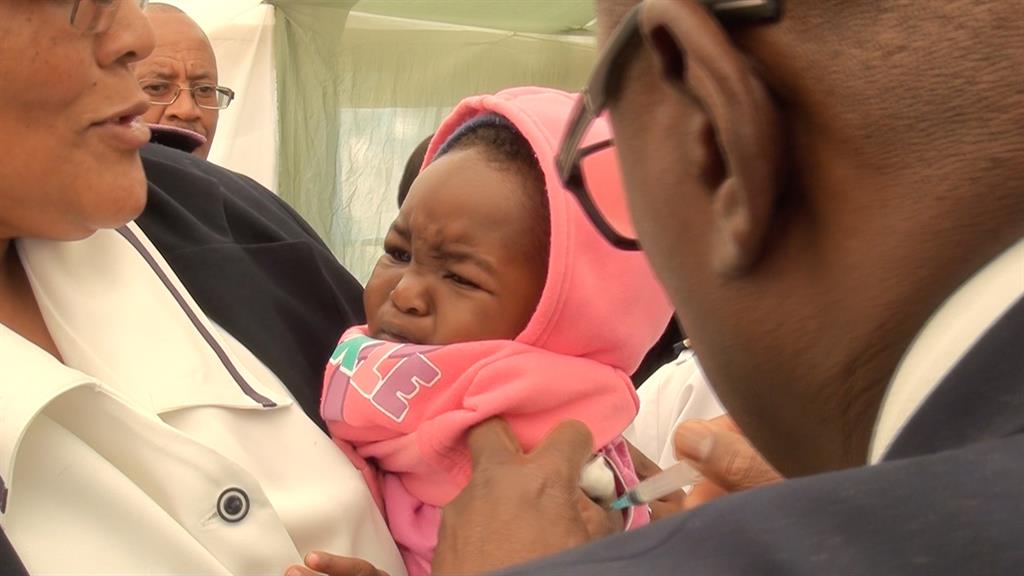Winning the fight against measles
There has been a drastic decline in measles cases in Namibia in the last decade thanks to concerted immunisation efforts.
Over the past decade there has been a drastic decline in measles cases in Namibia, dropping from 1 815 to only 16 confirmed cases this year.
This is according to new estimates from the World Health Organisation (WHO) and the United States Centers for Disease Control and Prevention (CDC).
According to a statement released by the WHO, worldwide more than 140 000 people died from measles in 2018.
“These deaths occurred as measles cases surged globally, amidst devastating outbreaks in all regions.”
According to the statistics, while there were 170 suspected cases of measles this year in Namibia only 16 were confirmed cases.
Statistics further indicate that confirmed cases of measles in the country have been relatively low since 2016.
In 2015 Namibia reported 1 052 measles cases, but in 2016 that had dropped to only 42 cases and the incidence has remained fairly stable at 34 in 2017 and 27 cases last year.
According to the statistics the measles incidence per 100 000 people stood at 10.89.
According to the WHO statement evidence shows that contracting the measles virus can have further long-term health impacts, with the virus damaging the immune system's memory for months or even years following infection.
This 'immune amnesia' leaves survivors vulnerable to other potentially deadly diseases, like influenza or severe diarrhoea, by harming the body's immune defences.
Measles is preventable through vaccination. However, vaccination rates globally have stagnated for almost a decade, the statement said.
The WHO and Unicef estimate that 86% of children globally received the first dose of measles vaccine through their country's routine vaccination services in 2018, and fewer than 70% received the second recommended dose.
“Worldwide, coverage with measles vaccine is not adequate to prevent outbreaks. WHO recommends that 95% vaccination coverage with two doses of measles vaccine is needed in each country and all communities to protect populations from the disease.”
Estimating the total number of cases and deaths globally and by region, the report finds that the worst impacts of measles were in sub-Saharan Africa, where many children have persistently missed out on vaccination.
The statistics show that that there were more than 9.7 million estimated measles cases and 142 300 related deaths globally in 2018, decreasing from 28.2 million cases and 535 600 deaths in 2000. In 2017, there were 7.5 million estimated cases and 124 000 estimated deaths.
By region in 2018, the WHO estimates that in the African region, there were 1.7 million total cases and 52 600 deaths.
ELLANIE SMIT
This is according to new estimates from the World Health Organisation (WHO) and the United States Centers for Disease Control and Prevention (CDC).
According to a statement released by the WHO, worldwide more than 140 000 people died from measles in 2018.
“These deaths occurred as measles cases surged globally, amidst devastating outbreaks in all regions.”
According to the statistics, while there were 170 suspected cases of measles this year in Namibia only 16 were confirmed cases.
Statistics further indicate that confirmed cases of measles in the country have been relatively low since 2016.
In 2015 Namibia reported 1 052 measles cases, but in 2016 that had dropped to only 42 cases and the incidence has remained fairly stable at 34 in 2017 and 27 cases last year.
According to the statistics the measles incidence per 100 000 people stood at 10.89.
According to the WHO statement evidence shows that contracting the measles virus can have further long-term health impacts, with the virus damaging the immune system's memory for months or even years following infection.
This 'immune amnesia' leaves survivors vulnerable to other potentially deadly diseases, like influenza or severe diarrhoea, by harming the body's immune defences.
Measles is preventable through vaccination. However, vaccination rates globally have stagnated for almost a decade, the statement said.
The WHO and Unicef estimate that 86% of children globally received the first dose of measles vaccine through their country's routine vaccination services in 2018, and fewer than 70% received the second recommended dose.
“Worldwide, coverage with measles vaccine is not adequate to prevent outbreaks. WHO recommends that 95% vaccination coverage with two doses of measles vaccine is needed in each country and all communities to protect populations from the disease.”
Estimating the total number of cases and deaths globally and by region, the report finds that the worst impacts of measles were in sub-Saharan Africa, where many children have persistently missed out on vaccination.
The statistics show that that there were more than 9.7 million estimated measles cases and 142 300 related deaths globally in 2018, decreasing from 28.2 million cases and 535 600 deaths in 2000. In 2017, there were 7.5 million estimated cases and 124 000 estimated deaths.
By region in 2018, the WHO estimates that in the African region, there were 1.7 million total cases and 52 600 deaths.
ELLANIE SMIT





Comments
Namibian Sun
No comments have been left on this article